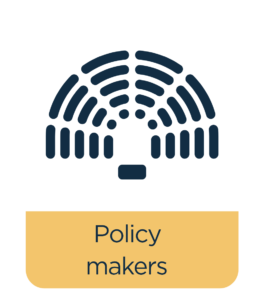Discover dedicated tools designed for you
 ANTIMICROBIALS ARE ESSENTIAL MEDICINES
ANTIMICROBIALS ARE ESSENTIAL MEDICINESto control and treat infection in both
humans and animals.
 BUT THEY ARE LOSING THEIR EFFICACITY
BUT THEY ARE LOSING THEIR EFFICACITYat an increasing rate.
- The risk that disease-causing agents will develop resistance to an antimicrobial increases whenever antimicrobials are overused or used inappropriately.
- A strong inter-sector collaboration is needed to preserve the efficacy of antimicrobials
by ensuring they are handled prudently when used in humans, animals or plants. - The World Organisation for Animal Health, the OIE, has developed international Standards on antimicrobial resistance to help governments to support animal health with harmonised policies and rules.
you have a role to play.
 In addition to actions needed in the human health and plants sectors, we need you to ensure that the responsible and prudent use of antimicrobials in animals is practiced in your country.
In addition to actions needed in the human health and plants sectors, we need you to ensure that the responsible and prudent use of antimicrobials in animals is practiced in your country.
The OIE has developed intergovernmental standards on antimicrobial resistance (AMR) to help maintain their efficacy. These texts cover the use of antimicrobials, development of surveillance programmes, monitoring quantities of antimicrobials used, and risk analysis of the emergence and spread of resistant bacteria in terrestrial and aquatic animals. Use them to ensure that your country can fight the AMR threat.
The reverse of this factsheet provides a summary of the main points for the responsible and prudent use of antimicrobials in animals. You can also consult the full version of these texts here:
Well-structured veterinary services, a strong national legislation, awareness actions and research supporting these initiatives are crucial.
should:
- Ensure that legislation supports responsible and prudent use of antimicrobials and that Veterinary Services which play a key role in the fight against AMR have the capacity to implement legislation.
- Control the use of antimicrobials under the supervision of well-trained veterinarians.
– Ensure that antimicrobials can only be obtained with a veterinary prescription, based on scientific evidence.
– Support and fund minimum geographical coverage by veterinarians for animal health surveillance.
– Enable and support Veterinary Statutory Bodies which oversee veterinary qualifications as well as the ethical standards and professional excellence of veterinarians – including antimicrobial stewardship. - Prevent the importation, manufacturing and circulation of non-quality products. Illegal sales should be brought under control and perpetrators should be prosecuted.
- Support and finance research into the development of methods for the prevention, diagnosis and treatment of diseases to reduce the dependence on antimicrobials, including rapid diagnostic tests and vaccines.
- Support the organisation of awareness campaigns on the responsible and prudent use of antimicrobials in animals among stakeholders.
- Develop national programmes
to monitor antimicrobial use, based on OIE international Standards.

